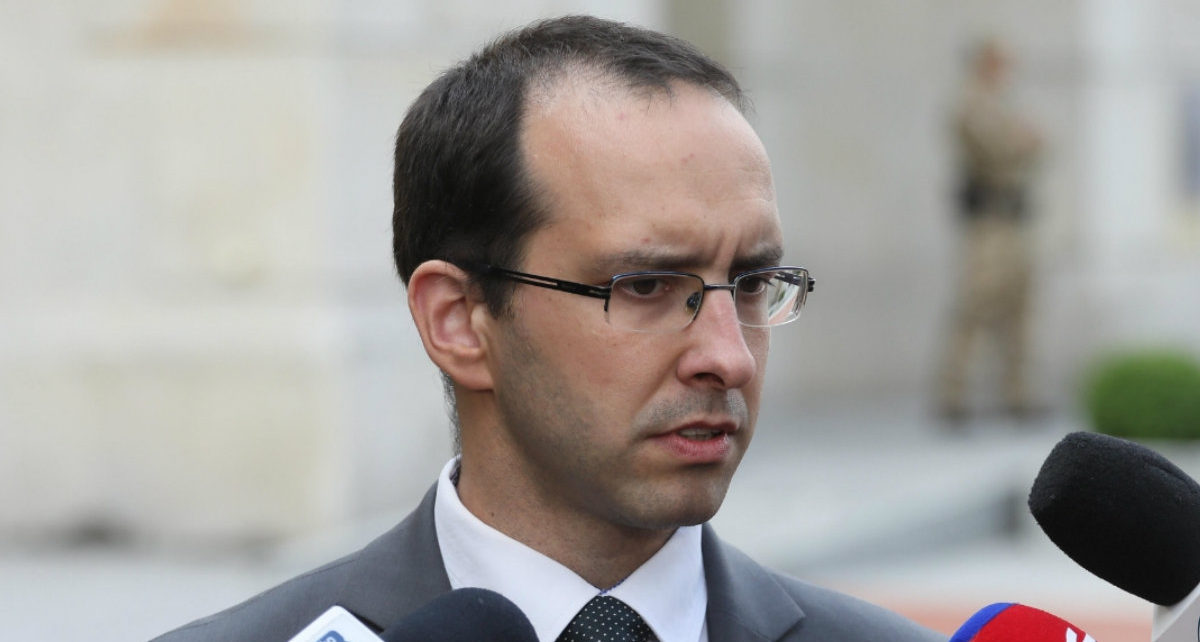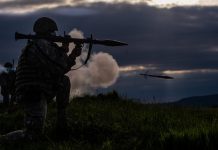By Stanisław Żaryn, for StopFake
After over one year we can clearly state, that the very picture of the Russian war against Ukraine and its online dimension is often as important as developments on the battlefield. Images, videos and all sort of information that reach the public opinion – Ukrainian, Russian or Western – count as significant measures applied in order to achieve specific goals. Although the concept that information is a weapon is nothing new, it is now clear that without using information warfare efforts there is nor full scale kinetic aggression, neither defend operation. Taking into account the role played in this war by psychological and information operations we cannot underestimate these kind of measures.
The Russian aggression against Ukraine has shown that information warfare is crucial part of conventional war. Russians are using it to take care of its soldier’s morale, destabilize the opponent, shape the reactions of the world, create certain situations, achieve goals, etc. The example of Russia shows that it has been conducting its information activities in the long term and in advance of conventional actions (e.g. to this day, it still relies on the lies spread since 2014 about Ukrainian Nazis threatening the Russian-speaking community of eastern Ukraine). It must be highlighted that Russia uses all possible methods in its aggression against Ukraine, conducting also hybrid operations against NATO countries. The Kremlin possesses a wide range of applicable tools, including psychological and information operations, which are applied in order to fulfil Russia’s strategic imperial goals: destroy the Ukrainian state and occupy its territory. At the same time Kremlin is trying to weaken the West and broaden the Russian sphere of influence. That is why hybrid war waged by Russia against the Western countries should be assessed as part of the war against Ukraine.
If this is what contemporary warfare looks like, the Western Community must draw appropriate conclusions and increase its defence capacities. Our strategy should encompass not only classical military plans, but also solid structures responsible for defensive information warfare need to be built, basing on the assumption that if there is information warfare, there must be adequate information defence. We must develop strategies to counter hostile information efforts– in other words we must not only increase our resilience, but also be able to defend ourselves from information and psychological attacks, as they complement conventional, military actions.
This information defence strategy must also deeply focus on strategic communication conducted by governments and public institutions, directed at own societies, allies, third countries, but also – what is the most difficult element – at the societies of regimes hostile towards the West, as in the case of the Russian Federation. Russian authoritarian state has created a complex and effective system of propaganda, manipulation and intimidation, with which it holds Russians’ minds captive. The Western Community must find a way to break through this information blockade and reach the Russian audience with unmanipulated and simply true narratives concerning politics, history or international relations and debunking all the lies repeated by the Russian authorities. It is not an easy task, nor will it bring any breakthrough in a short term perspective. But we must try, find possible ways and remain perseverant, believing that constant dropping wears away a stone. Otherwise in Europe, we will have as a neighbour a completely brainwashed nation of barbarians who has been manipulated and lied to for generations.
Once we acknowledge that information warfare is of crucial importance in the Russian war against Ukraine, but also in the Russian hybrid operations against us, we must assess how to build our effective defence, also in order to be prepared in advance to any circumstances that may occur in the future. First of all, we need effective and reliable intelligence, as we must know what is happening in Russia and what the real Russia’s strategic goals are. It is crucial during all crisis in Russia like “Prigozhin’s rebellion”, but also for our long-term strategic decisions and analysis. Basing our judgement on the history, military doctrine of the Russian Federation, Russian imperialist policy that has not changed not only for decades, but for centuries, as well as on the current developments in Ukraine, today we know that the Kremlin will not stop or back down, because its paramount goal is to reshape the security architecture in Europe.
Another crucial element of our strategy should be strong internal services and analytical structures that will be able to provide us with accurate and reliable description of phenomena and occurrences that we face. Russia very cleverly employs various façades to hide real intentions or nature of its actions, so we must be able to uncover such efforts and know how to interpret them. One of the recent examples of façades used by the Russian Federation in its hybrid operation against Poland and Europe is the migratory pressure artificially created at the Polish-Belarusian border in order to destabilise the situation in Poland and weaken the NATO eastern flank. Fortunately, from the very beginning of this crisis situation, Poland was able to clearly define and identify the hybrid operation underway there, thanks to a realistic assessment of the situation and the potential threat.
Finally, we must be able to set boundaries. Russia finds our freedoms and our values as our vulnerabilities and gaps through which may infiltrate the Western information space and influence the public opinion. Today we cannot let ourselves be naive. The freedom of expression – when is used by hostile intelligence services and agents of influence to wage information warfare against us – has to have clearly defined limits and those involved in psychological-information operations carried out against NATO, Poland or any other western country, must be sanctioned.
By destabilising Europe, Russia has begun a long and dangerous march. From our perspective, the stakes are extremely high. The Western Community must understand that what is being decided on the battlefield on the Ukrainian soil is not only the fate of the Ukrainian nation, but also the security and shape of the world that we know. If Russia is not stopped now, it will be only a matter of time Moscow will challenge NATO – already today we see that Russia poses a threat to the Alliance. A country like Poland – a constant target of the Russian aggressive information warfare and hybrid operations – is particularly threatened. From what we see in the Russian propaganda, rhetoric of the Kremlin’s top officials, analysis of the Russian doctrine or assessment of hybrid operations, emerges more and more clear conclusion that – in a long term perspective – Russia may consider questioning the Polish statehood. If we don’t take firm, decisive and far-reaching steps now, the words pronounced by the late Polish President Lech Kaczyński in 2008 in Tbilisi that “today it is Georgia, tomorrow Ukraine, the day after tomorrow the Baltic States, and then perhaps my country, Poland” will sound more plausible than ever, sooner than we think. Let’s redouble our efforts to make this scenario impossible to happen.
By Stanisław Żaryn, for StopFake
Stanisław Żaryn is Government Plenipotentiary of the Security of Information Space of the Republic of Poland





